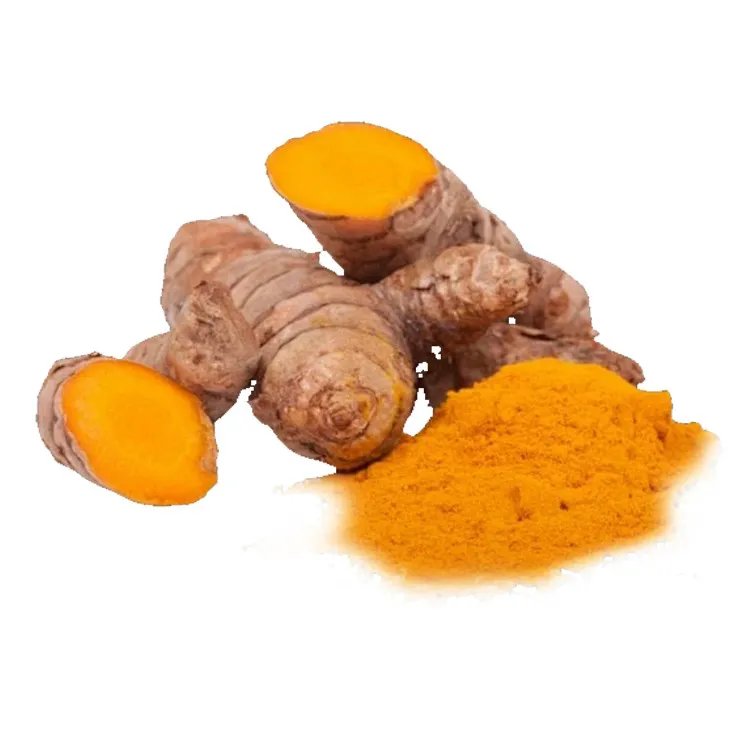- 0086-571-85302990
- sales@greenskybio.com
Boswellia vs. Curcumin: A Comparative Analysis of Two Prominent Anti-Inflammatory Agents
2025-06-26

In the ever-evolving world of natural supplements, Boswellia and Curcumin have emerged as two of the most popular choices for those seeking relief from inflammation and joint pain. Known for their potent anti-inflammatory properties, both have been used for centuries in traditional medicine systems. However, a common question arises: is Boswellia better than Curcumin, or do they each bring unique benefits to the table? This article will explore the origins, mechanisms, benefits, and potential drawbacks of Boswellia and Curcumin to provide a comprehensive understanding of how these two natural compounds compare.
Understanding Boswellia and Its Benefits
Boswellia, also known as Indian frankincense, is derived from the resin of the Boswellia serrata tree. This resin contains several active compounds called boswellic acids, which are believed to be responsible for its anti-inflammatory and analgesic effects. Boswellia has been traditionally used in Ayurvedic medicine to treat a variety of conditions, including arthritis, asthma, and inflammatory bowel diseases.
Research suggests that Boswellia may act by inhibiting the enzyme 5-lipoxygenase (5-LOX), which plays a key role in the formation of leukotrienes—compounds that trigger inflammation in the body. By reducing leukotriene production, Boswellia may help alleviate symptoms associated with chronic inflammatory conditions. Clinical studies have provided evidence supporting Boswellia's efficacy in reducing pain and improving physical function in individuals with osteoarthritis and rheumatoid arthritis.

Exploring Curcumin and Its Role in Health
Curcumin is the primary bioactive compound found in turmeric, a spice commonly used in Indian cuisine and Ayurvedic medicine. It is renowned for its anti-inflammatory, antioxidant, and neuroprotective properties. Curcumin's ability to modulate multiple signaling molecules in the body enables it to exert wide-ranging therapeutic effects.
One of the main mechanisms by which curcumin promotes health is through the inhibition of nuclear factor-kappa B (NF-kB), a protein complex that plays a pivotal role in regulating the body's inflammatory response. By suppressing NF-kB activation, curcumin can reduce inflammation and protect tissues from damage. Additionally, curcumin has been studied for its potential role in cancer prevention, cardiovascular health, and cognitive function.

Comparative Benefits and Applications
When comparing Boswellia and curcumin, it is important to consider their distinct mechanisms and therapeutic applications. Both have demonstrated the ability to alleviate inflammation and improve conditions related to chronic inflammation, yet they might be more effective in different contexts or with varying underlying causes of inflammation.
1. Anti-Inflammatory Efficacy
While both Boswellia and curcumin are effective in reducing inflammation, the specific pathways they target differ. Boswellia's inhibition of leukotrienes may make it particularly effective for inflammatory conditions involving the respiratory system, such as asthma and chronic obstructive pulmonary disease (COPD), as well as for joint-related disorders. Curcumin's broad-spectrum anti-inflammatory action, including inhibition of NF-kB, lends itself well to a wider range of inflammatory conditions, from autoimmune diseases to metabolic syndromes.
2. Arthritis and Joint Health
Both Boswellia and curcumin have been extensively studied for their benefits in managing arthritis symptoms. Studies indicate improvements in pain and physical function for osteoarthritis patients using either supplement. However, Boswellia’s specific impact on leukotrienes might provide added benefits for inflammation-mediated joint degradation, while curcumin's antioxidant properties could offer additional protection against oxidative stress in joints.
3. Absorption and Bioavailability
A significant consideration when evaluating curcumin is its low bioavailability when consumed in its natural form. Curcumin is poorly absorbed, rapidly metabolized, and quickly eliminated from the body. To counter this challenge, several formulation strategies, such as combining curcumin with piperine (found in black pepper) or developing curcumin phytosomes, have been employed to enhance its bioavailability. In contrast, Boswellia is generally well-absorbed, with most formulations offering efficient delivery and bioactive availability.
4. Safety and Tolerability
Both Boswellia and curcumin are considered safe when used in recommended doses. However, some individuals may experience gastrointestinal discomfort or allergic reactions to Boswellia. Curcumin, particularly at higher doses, may also cause gastrointestinal issues or interact with medications, such as blood thinners, due to its ability to decrease blood clotting.

Potential Synergistic Use
For those grappling with chronic inflammatory conditions, combining Boswellia and curcumin may offer complementary benefits. This duo can address inflammation on multiple fronts—targeting different inflammatory pathways and oxidative stress—thereby potentially enhancing therapeutic outcomes. Yet, it remains essential for individuals to consult healthcare professionals before beginning any new supplement regimen, especially if they have existing health conditions or are taking other medications.

Conclusion
The question of whether Boswellia is better than curcumin does not have a straightforward answer, as both possess unique and overlapping benefits. The choice between them—or the decision to use both—depends on the specific health goals, individual response, and presence of other health conditions. As research evolves, these natural compounds continue to show promise in the realm of anti-inflammatory therapy. By understanding their mechanisms and applications, individuals can make informed decisions to support their health and well-being with these powerful botanical allies.
- ▶ Hesperidin
- ▶ Citrus Bioflavonoids
- ▶ Plant Extract
- ▶ lycopene
- ▶ Diosmin
- ▶ Grape seed extract
- ▶ Sea buckthorn Juice Powder
- ▶ Fruit Juice Powder
- ▶ Hops Extract
- ▶ Artichoke Extract
- ▶ Mushroom extract
- ▶ Astaxanthin
- ▶ Green Tea Extract
- ▶ Curcumin
- ▶ Horse Chestnut Extract
- ▶ Other Product
- ▶ Boswellia Serrata Extract
- ▶ Resveratrol
- ▶ Marigold Extract
- ▶ Grape Leaf Extract
- ▶ New Product
- ▶ Aminolevulinic acid
- ▶ Cranberry Extract
- ▶ Red Yeast Rice
- ▶ Red Wine Extract
-
Kupilu Extract
2025-06-26
-
Ginseng Root Extract
2025-06-26
-
Tongkat Ali Extract Powder
2025-06-26
-
Feverfew Extract
2025-06-26
-
Sophora Flavescens Root Extract
2025-06-26
-
Nettle leaf extract
2025-06-26
-
Pomegranate Extract
2025-06-26
-
Mulberry leaf Extract
2025-06-26
-
Coconut Water Powder
2025-06-26
-
Mulberry Extract
2025-06-26





















